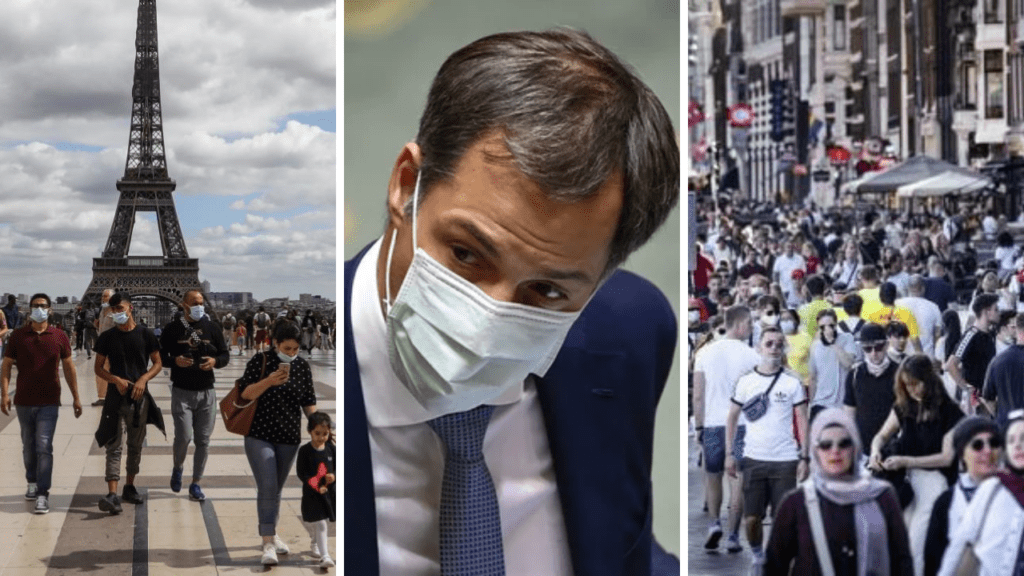Following announcements of stricter measures in France and the Netherlands, Belgium needs "a resolute policy" to manage the second wave of coronavirus infections, without becoming "excessive," according to virologist Marc Van Ranst.
After the Netherlands announced that it would go in "partial lockdown" from Wednesday evening and France declared the public health state of emergency, calls to follow the neighbouring countries' example have been rising in Belgium.
Especially the measures announced in France can have an important impact on Belgium, as particularly the Francophone regions often look to France for inspiration for measures.
Belgium needs vigorous measures, without being excessive, Van Ranst said, adding that we should avoid competing with other countries to become the one with the strictest rules.
Related News
- Brussels hospitals told to reserve 50% of ICU beds for Covid patients
- Belgium can't rule out another lockdown, experts warn
- Belgium: Second worst country in Europe for coronavirus infections
On Wednesday evening, French President Emmanuel Macron said that it was unnecessary to proceed with a new lockdown, but that limiting social contacts remains key. The maximum number of people allowed to go to bars or restaurants will be limited to six, and face masks are recommended strongly, including when visiting family.
He also announced a curfew - as is already in place in several provinces in Belgium - for the region around Paris, as well as the major cities Grenoble, Marseille, Lille and Toulouse. From Saturday, inhabitants will have to stay inside between 9:00 PM and 6:00 AM.
In the Netherlands, bars and restaurants have closed as part of the country locking down. A similar measure for restaurants is also being considered in Belgium, according to virologist Steven Van Gucht. Tightening the rules for events and gatherings could also be a good idea, he said.
Stricter measures, in Brussels in particular, are useful and necessary, Van Gucht told Bruzz, but respecting the "golden rules" remains the most important step.
A scenario in which restaurants in Brussels have to close, but can remain open in Flanders - possibly with an earlier closing time and a smaller number of people per table - could also be possible, he said.
Additionally, people have been instructed to work from home in the Netherlands, unless it is really not possible, something that some Belgian experts suggested should become mandatory again instead of recommended.
Several other possible measures for Belgium, such as a 'code orange' for education, in which fewer people have to go to school, have both advantages and disadvantages that need to be considered carefully, according to Van Gucht.
Maïthé Chini
The Brussels Times

